Les pompes à chaleur sont une excellente option pour les propriétaires qui souhaitent économiser de l'argent sur leurs factures de chauffage et réduire leur empreinte carbone., but they aren’t the right choice for everyone. To help you decide whether this technology is right for your home, we’ve put together a quick guide that breaks down the pros and cons of heat pumps vs chaudières à gaz.
Heat pump
A heat pump is a device that transfers heat from one place to another. Heat pumps use electricity to move heat from cold to hot, so they’re capable of heating and cooling your home.
Heat pumps have some advantages over gas boilers: they are more efficient at transferring heat, they don’t require any fuel delivery services (like natural gas), and they may be eligible for government rebates or tax credits depending on where you live.
Advantages of the heat pump
There are many advantages to using a heat pump as your primary heating system. Première, they’re very energy efficient and can reduce your total carbon footprint. Second, they can be used as a secondary heating system in conjunction with other types of heat sources like wood stoves or fireplaces. Heat pumps can also be used to heat water–either hot or cold–and even cool it down at the same time! Plus, they operate quietly so you won’t have to listen to loud noises while doing other things around the house or apartment complex such as working on projects or watching TV (if you’re into that).
Advantages of the gas boiler
- Gas boilers are cheaper to run than heat pumps.
- Ils sont plus efficaces, so you’ll save money on your energy bills.
- They’re also more reliable, which means you can rely on them when it comes to keeping your home warm and dry all year round.
- The installation process is easier with a gas boiler because it doesn’t require any special wiring or plumbing like some other types of heating systems do (par exemple., wood pellet stoves).
Psst. Besoin d'une nouvelle chaudière? Get a fixed online quote fast, here.
Installation Complexity Compared
Heat pumps are more complex to install, require more expertise, and take longer than gas boilers. The installation process involves drilling holes in your walls and installing pipes that connect to a compressor outside your home. This makes heat pump installations more expensive than gas boiler installations as well.
Air source heat pumps generally take a little while longer to install than gas boilers (between 2 et 3 jours).
In addition to all this extra work, there’s also the issue of space–you might not have enough room for a large heating system like this if you live in an apartment or condo building with limited square footage.
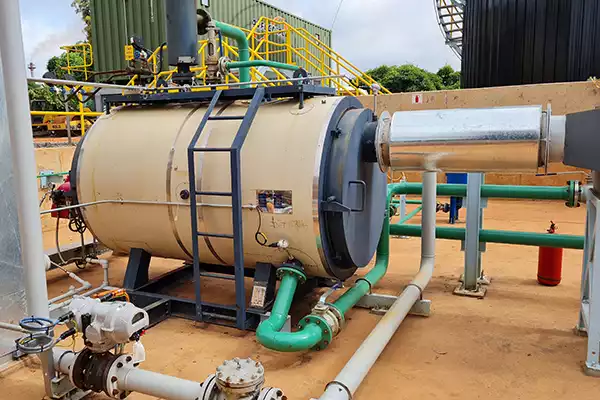
Upfront Costs Compared
Gas boilers price
Gas boiler prices can vary depending on various factors such as the type of boiler, marque, BTU output, and efficiency rating.
According to HomeAdvisor, the cost range for residential gas boilers is typically between $3,317 et $8,457. This cost includes the unit alone. Additional labor costs for installation can range from $1,000 à $3,500.
Heat pump prices
The cost of a heat pump can vary depending on factors such as the type of heat pump, marque, capacité, and installation requirements. En moyenne, heat pumps can range in price from $3,500 à $7,500.
It’s important to note that this price range is an estimate and the actual cost may vary based on different factors such as location, additional features or upgrades, and any necessary modifications to the existing heating and cooling system.
Besoin d'une nouvelle chaudière?
Running Costs Compared
When comparing running costs of heat pumps and gas boilers, a study by the Regulatory Assistance Project (RAP) shows that an efficient heat pump can save households up to 27% on their heating bills compared to a gas boiler. For an average household, this translates to a savings of approximately £261 per year. Cependant, it is important to note that the cost savings of a heat pump compared to a gas boiler can depend on several factors, including the location, the efficiency of the systems, and the cost of electricity and gas in the area.
There are several factors that influence how much it will cost to run a heat pump vs gas boiler:
- Efficiency – Heat pumps tend to be more efficient than traditional boilers because they use less electricity or gas to produce the same amount of warmth. This means that they have lower operating costs overall.
- Equipment Costs – You’ll need to buy an air source condensing unit for your heat pump installation, but once this initial outlay has been made you won’t have any further equipment costs unless something breaks down during its lifetime (which isn’t likely). However if there’s anything wrong with its parts then it will need replacing which could prove expensive depending on what needs fixing!
Efficiency Compared
The efficiency of heat pumps compared to gas boilers can vary depending on various factors. Heat pumps typically have higher energy efficiency ratings than gas boilers. According to the Regulatory Assistance Project (RAP), heat pumps can be more energy efficient than gas boilers, especially in moderate climates. Gas boilers typically have efficiencies ranging from 80% to 95%.Or in other words, for every pound spent six pence is wasted.
Heat pumps are a staggering 300-400% efficace. That means for a single kilowatt of electricity used you’re going to get three to four times more energy.
Heat pump efficiency is often measured using the COP (Coefficient of Performance) or SCOP (Seasonal Coefficient of Performance). Par exemple, a SCOP of 3 signifie que pour chaque 1 kW of electricity used, 3 kW of heat is produced.
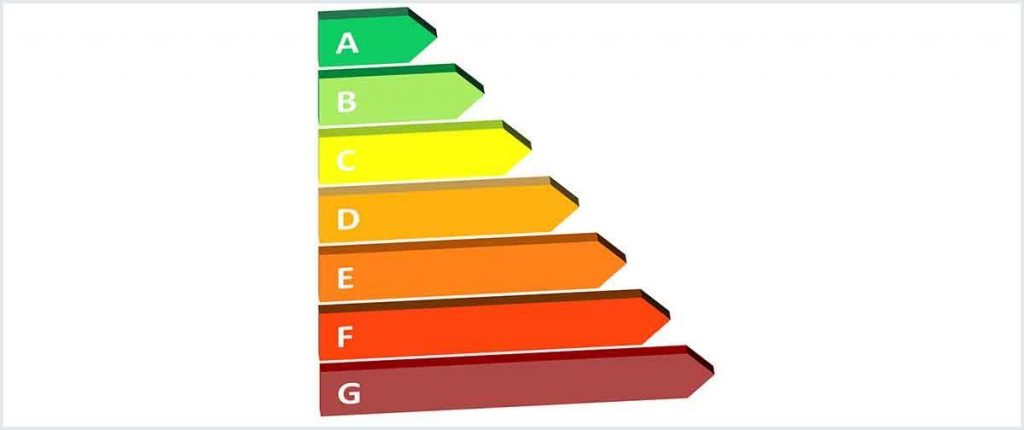
Performance & Heat Output Compared
A heat pump is more efficient than a gas boiler, and it has a higher output. The efficiency of a heat pump can be controlled by a thermostat so that you have precise control over your heating costs.
For illustration, a boiler has a high flow temperature of around 70°C, while an air source heat pump is between 35°C to 45°C for the radiator system and around 55°C for hot water.
Carbon Footprint Compared
The carbon footprint of a heat pump is significantly lower than that of a gas boiler. Heat pumps use electricity to power an air-to-water heat exchanger, which then transfers heat from the ambient air into water pipes. This means that they have no direct emissions associated with them, unlike boilers that burn fossil fuels such as natural gas or propane to generate heat.
En outre, because they’re not heating up the entire house like boilers do (and therefore using extra energy), you may find that your utility bills are lower when using a heat pump instead of another type of appliance.
Obtenez des devis de chaudière GRATUITS
Obtenez des devis gratuits de chaudières locales aujourd'hui
Comparez les meilleurs prix
Économisez de l'argent sur votre nouvelle chaudière aujourd'hui!
Lifespan Compared
The lifespan of a heat pump is typically 20 années, while a gas boiler’s is 15 années. Heat pumps can last even longer if they’re properly serviced and maintained by a qualified technician, who will ensure that all filters are cleaned and working correctly.
Gas boilers need to be serviced regularly too–but not as much as heat pumps do. The lifespan of your gas boiler can be extended by having it serviced annually (or every two years) by an experienced technician who will check for signs of wear or damage, along with making sure everything else is in perfect working order before he leaves.
Is a heat pump more efficient than a gas boiler?
- Heat pumps are more efficient.
- A heat pump is more energy-efficient than a gas boiler.
- Heat pumps are environmentally friendlier than gas boilers, as they don’t produce carbon dioxide or other pollutants that contribute to global warming.
- Heat pumps are more reliable than gas boilers because they have fewer moving parts and need less maintenance over time, which means you can rely on them for years of comfortable warmth without worrying about breakdowns or repairs being needed anytime soon!
Enfin, if you’re looking for affordability: The initial investment in installing a new system (which includes purchasing an outdoor unit as well as indoor units) may be higher than what you would pay upfront when choosing another option like installing a traditional boiler system inside your home; however after taking into account all costs associated with running both types of equipment over their lifespan (including maintenance fees), it turns out that using only electricity produced by renewable sources like solar panels installed on top roofs could actually save money in the long run versus buying natural gas from utility companies every month during winter months when temperatures drop below freezing point temperatures outside (-20 degrees Celsius).

Is it cheaper to run heat pump or gas boiler?
As we’ve discussed, heat pumps are more efficient than gas boilers. This means that they use less energy to produce the same amount of heat. As a result, you do not have to run your heat pump as often as you would need to run your boiler in order to maintain the same temperature in your home or office.
This means that over time it will cost less money for you when using a heat pump instead of gas heating system because it takes less time for them both so therefore there is less maintenance required which also reduces costs further down line with no extra effort needed by yourself or anyone else who uses these devices regularly within their homes/businesses etcetera (or whatever typeof property).
How much would a heat pump cost to replace a gas boiler?
a heat pump can take the place of a furnace and an air conditioner. But the area of the country you live in will factor into your comfort.
The average cost to replace an oil or gas furnace with a heat pump is $4,000 à $12,000. This price includes removing the oil or gas furnace for $150 à $400 or removing underground oil tanks for $400 à $3,500. A cheaper option is converting the furnace to a backup heating source.
Generally gas is cheaper than electricity in Southern California, therefore a gas-powered furnace typically costs less to operate than a heat pump which is powered by electricity. The more energy-efficient your HVAC system is, the less electricity and gas it will use.
You can install a heat pump to an existing gas furnace by using a dual fuel system. This framework uses a split or packaged unit to pull energy from two sources: electricity and gas.

Vous recherchez des chaudières avec une fabrication sophistiquée, grande qualité?
La chaudière Fangkuai peut toujours fournir ce que vous voulez.
Conclusion
En conclusion, both heat pumps and gas boilers offer unique advantages and limitations. Heat pumps excel in energy efficiency and environmental friendliness, while gas boilers provide reliable heating performance in all climates. To make the best decision for your home, assess your specific needs, lieu, and budget. Consider the long-term savings and environmental impact of each system before making your choice.
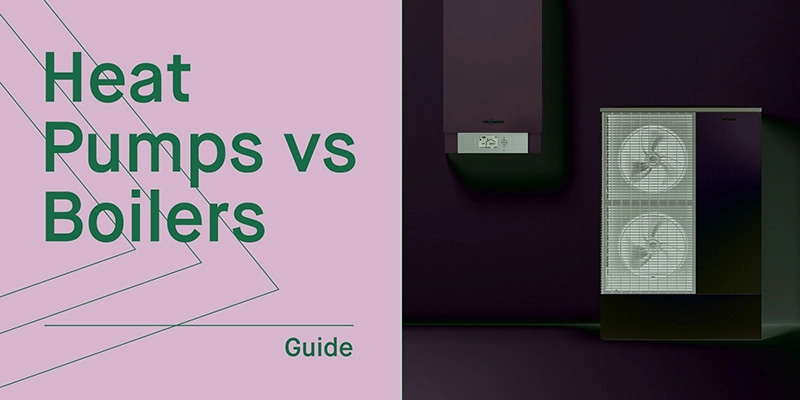
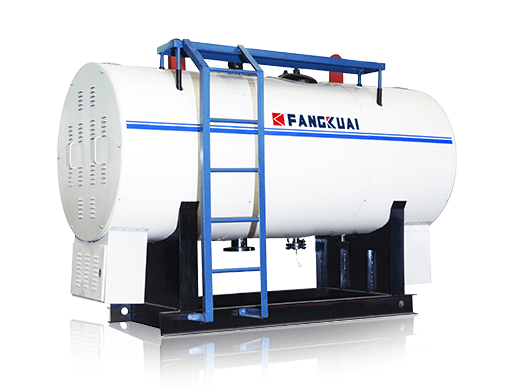 Chaudière à eau chaude électrique
Chaudière à eau chaude électrique 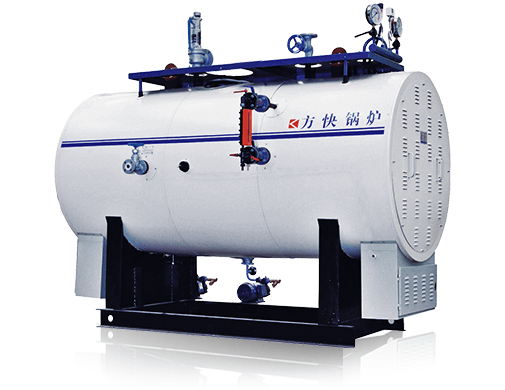 Chaudière à vapeur électrique
Chaudière à vapeur électrique 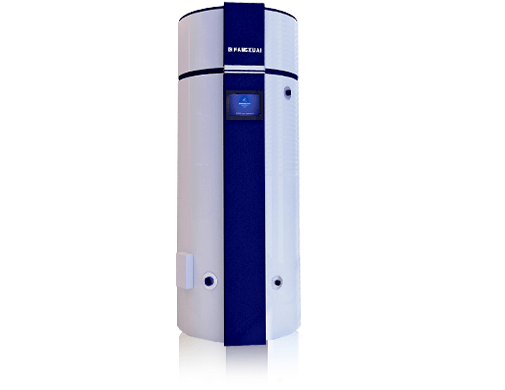 Chaudière à eau chaude au gaz V6
Chaudière à eau chaude au gaz V6 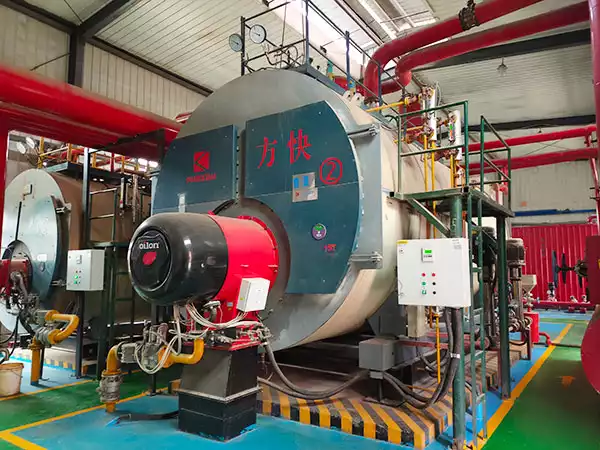 2023 Guide des prix des chaudières à gaz | Comparaison des coûts d'une chaudière à gaz domestique
2023 Guide des prix des chaudières à gaz | Comparaison des coûts d'une chaudière à gaz domestique 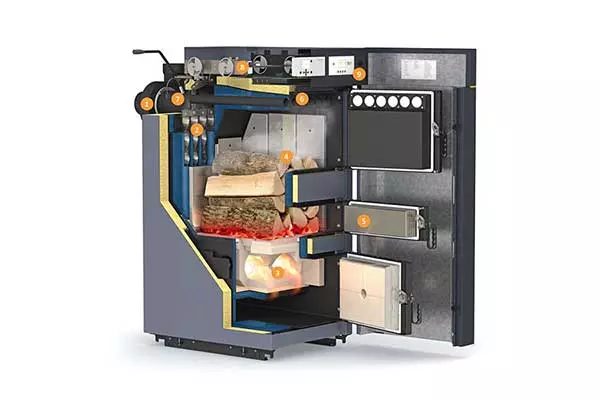 Meilleures chaudières à gazéification du bois à vendre | Guide d'achat
Meilleures chaudières à gazéification du bois à vendre | Guide d'achat 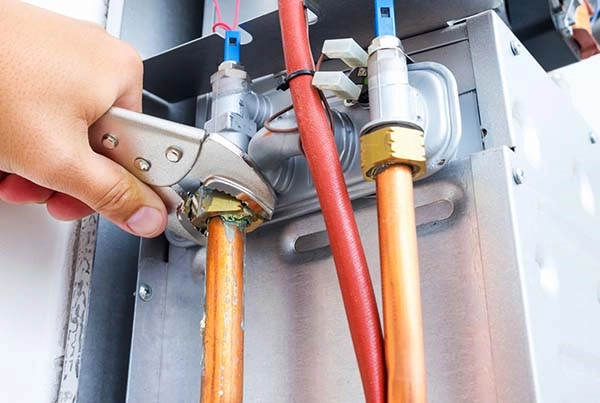 Prix des chaudières électriques mixtes | 2023 Guide d'achat
Prix des chaudières électriques mixtes | 2023 Guide d'achat 